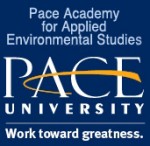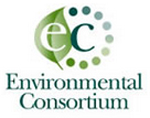 EarthDesk is the blog of Pace Academy for Applied Environmental Studies, created in the belief that higher education has a duty to advance the global conversation about the relationship between human and nature. We examine environmental issues critically through a diversity of disciplines, with special attention to the global water crisis, animal welfare and climate change.
EarthDesk is the blog of Pace Academy for Applied Environmental Studies, created in the belief that higher education has a duty to advance the global conversation about the relationship between human and nature. We examine environmental issues critically through a diversity of disciplines, with special attention to the global water crisis, animal welfare and climate change.
We convene thinkers and doers from our own campuses, the region, and the world, representing a host of interests – from law to art, business to the sciences, technology to human health, and more. Our objective is to advance creative thought and innovative solutions. We invite you to join the discussion.
John Cronin is managing editor for EarthDesk. Michelle D. Land and Andrew C. Revkin are its co-editors.
Disclaimer: The views and opinions expressed on EarthDesk are solely those of the original authors and other contributors. These views and opinions do not necessarily represent those of Pace University, its staff or any/all contributors to the EarthDesk blog. All comments are reviewed before posting and comments that include profanity or other inappropriate comments or material will not be posted.
dummy text
About Pace Academy for Applied Environmental Studies
 Pace Academy is a university center for excellence founded to advance a mutually enhancing relationship between nature and society. It develops and executes university-wide programs and courses based in interdisciplinary pedagogy, scholarship, policy development and public service. It engages expertise across Pace departments, schools and college in the tradition of Pace’s time-honored commitment to environment and community.
Pace Academy is a university center for excellence founded to advance a mutually enhancing relationship between nature and society. It develops and executes university-wide programs and courses based in interdisciplinary pedagogy, scholarship, policy development and public service. It engages expertise across Pace departments, schools and college in the tradition of Pace’s time-honored commitment to environment and community.
 Pace Academy also serves as the headquarters of the Environmental Consortium of Colleges & Universities, established in 2004 to help facilitate our understanding of the cultural, social, political, economic, and natural factors affecting the region. The Environmental Consortium’s mission is to harness higher education’s intellectual and physical resources to advance regional, ecosystem-based environmental research, teaching, and learning with a special emphasis on the greater Hudson-Mohawk River watershed.
Pace Academy also serves as the headquarters of the Environmental Consortium of Colleges & Universities, established in 2004 to help facilitate our understanding of the cultural, social, political, economic, and natural factors affecting the region. The Environmental Consortium’s mission is to harness higher education’s intellectual and physical resources to advance regional, ecosystem-based environmental research, teaching, and learning with a special emphasis on the greater Hudson-Mohawk River watershed.









